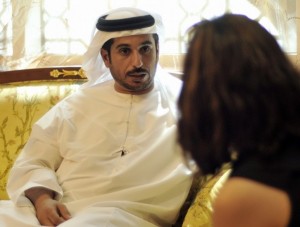
Bahrain Tribune - 07/09/2008
(MENAFN - Bahrain Tribune) Abu Dhabi finalises scheme to purchase 29,400 hectares of land in Sudan
UN trade watchdogs have launched a review to assess whether Gulf investment in overseas farmland will damage the vulnerable economies of Africa and Asia that are being targeted.
The governments involved have argued that the deals represent a "win-win" for both parties, with the Gulf nations securing cheap and reliable access to food and the recipients benefiting from new investment, technology and employment.
Last week's announcement from Al Qudra Holding - an investment company based in Abu Dhabi - that it aims to acquire 400,000 hectares of farmland in the Middle East, East Africa and Asia marked the latest such attempt. In response to such projects, the UN's Food and Agricultural Organisation (FAO) has assigned a task force to assess the likely impacts of investment from the UAE and its food-importing neighbours.
The investigation comes in the wake of comments from Dr Jacques Diouf, the director general of the FAO, who warned that such investments risked being perceived as "neo-colonialism". David Hallam, the head of trade policy at the FAO, said the UN was concerned about whether developing countries would benefit from the rush by Gulf firms to buy farmland abroad.
"Everyone wants to avoid a situation where one country is investing in another using a model of agriculture that is highly mechanised, so it doesn't create much employment; is reliant on imported seeds and fertilisers, so there is not that much local sourcing; and is large-scale, so you do not get spillover into smallholder agriculture," said Hallam. He visited Dubai last week to launch a survey that will see eight experts establish "best-practice guidelines" for firms embarking on foreign farming ventures.
The global report will focus on where "most of the action is happening" and look at the Gulf's relationship with Africa, he said. It will be published before a two-day food security summit in Riyadh beginning on October 25. "There are a lot of layers that are not only about economics and business, but political, ethical and social, which need to be aired," Hallam said.
"If these things are going to happen, then they really should be seen as joint ventures, rather than foreign direct investment." Global food price rises disproportionately affect countries like the UAE that rely heavily on imports, with the Emirates shipping in 85 per cent of supplies worth $3 billion (Dh11bn) last year, according to the Gulf Research Centre (GRC).
The expected doubling of the GCC population to nearly 60 million by 2030, combined with a regional decline in agriculture, means food imports look set to rise. Food scarcity has already impacted on the Arab world, with riots in Egypt in April leaving one person dead and others injured.
A GRC report on food inflation in May warned Gulf policy makers that shortages could spawn labour protests and tension.
Government and private investors from across the Gulf have announced plans to acquire overseas farmland and provide a cheap, long-term source of cereals, meat and dairy produce. As well as Al Qudra Holding's investment plans for Pakistan, Syria, Vietnam, Thailand, Sudan, India, Morocco and Algeria, the Abu Dhabi Government has finalised a scheme to purchase 29,400 hectares of land in northern Sudan and begin operations by the end of the year.
Observers expect evermore Gulf investors to jump on the agricultural bandwagon, although some have begun urging caution to those pouring petrodollar windfalls into developing world farms. A GRC report released this month highlighted poor roads and ports as one problem among a host of infrastructural and political shortcomings in the developing countries being targeted.












